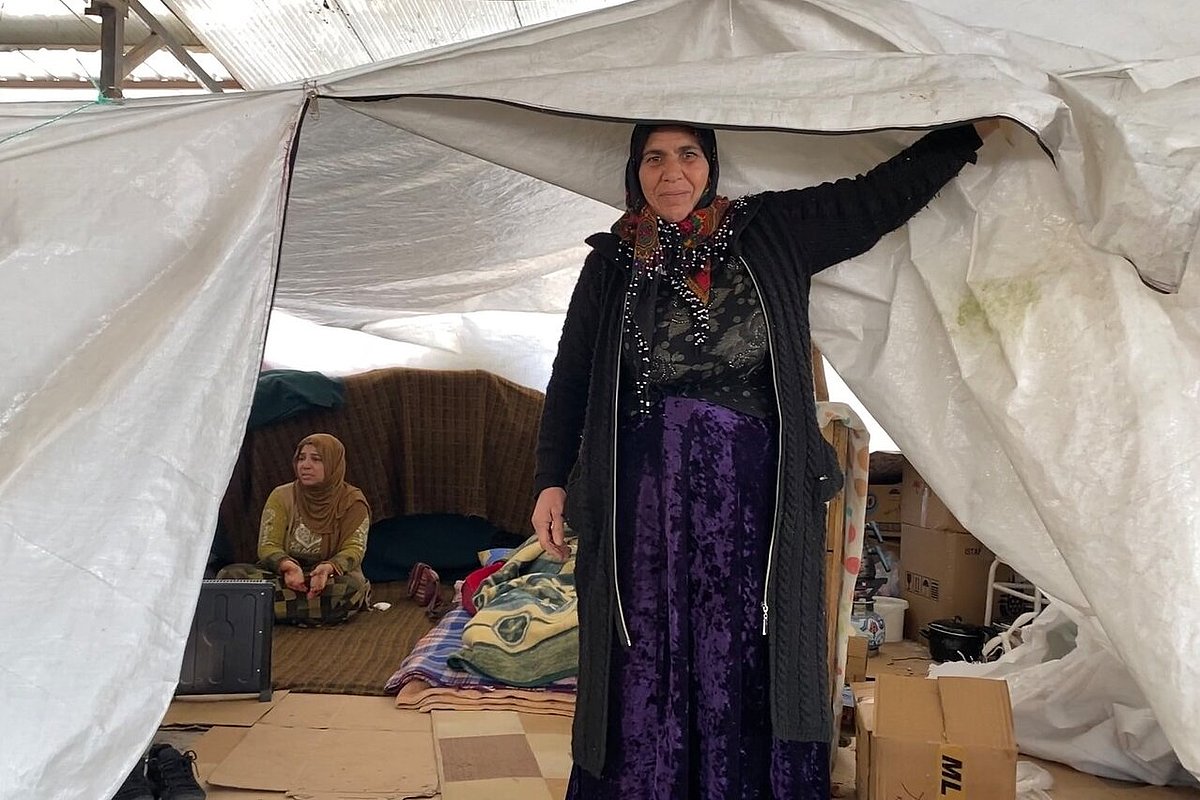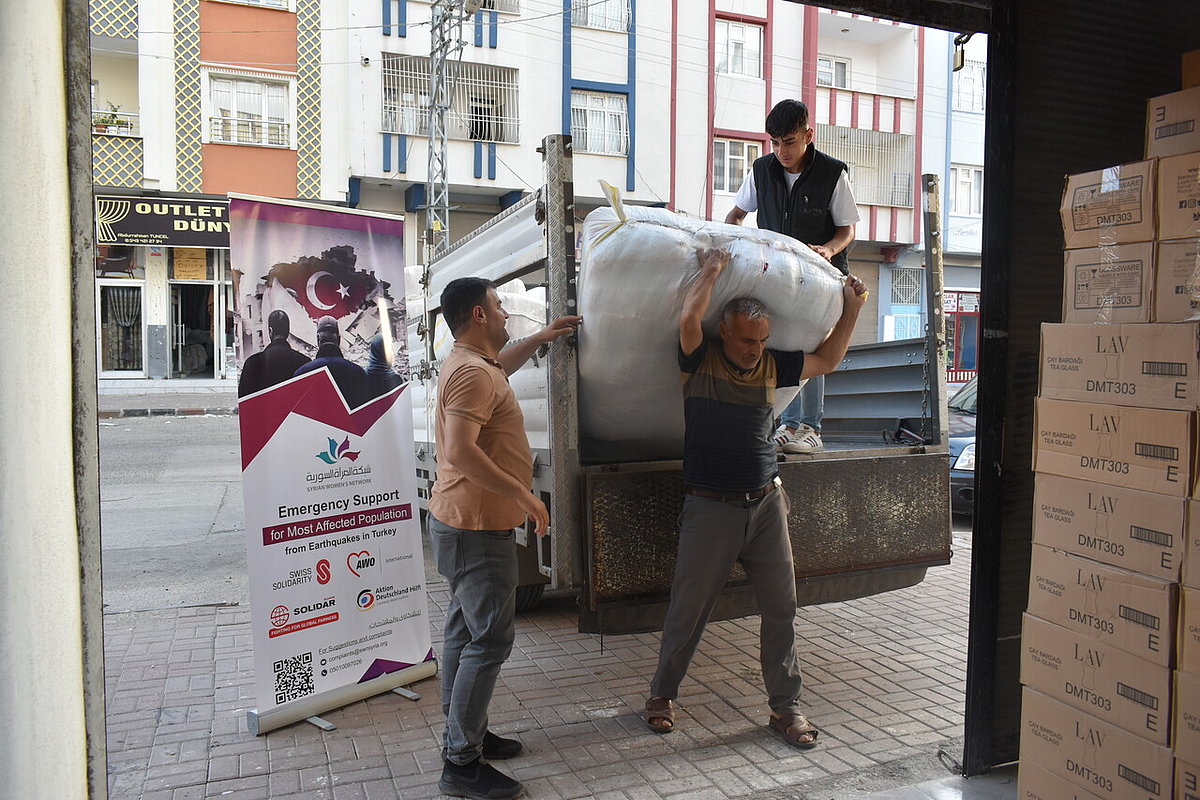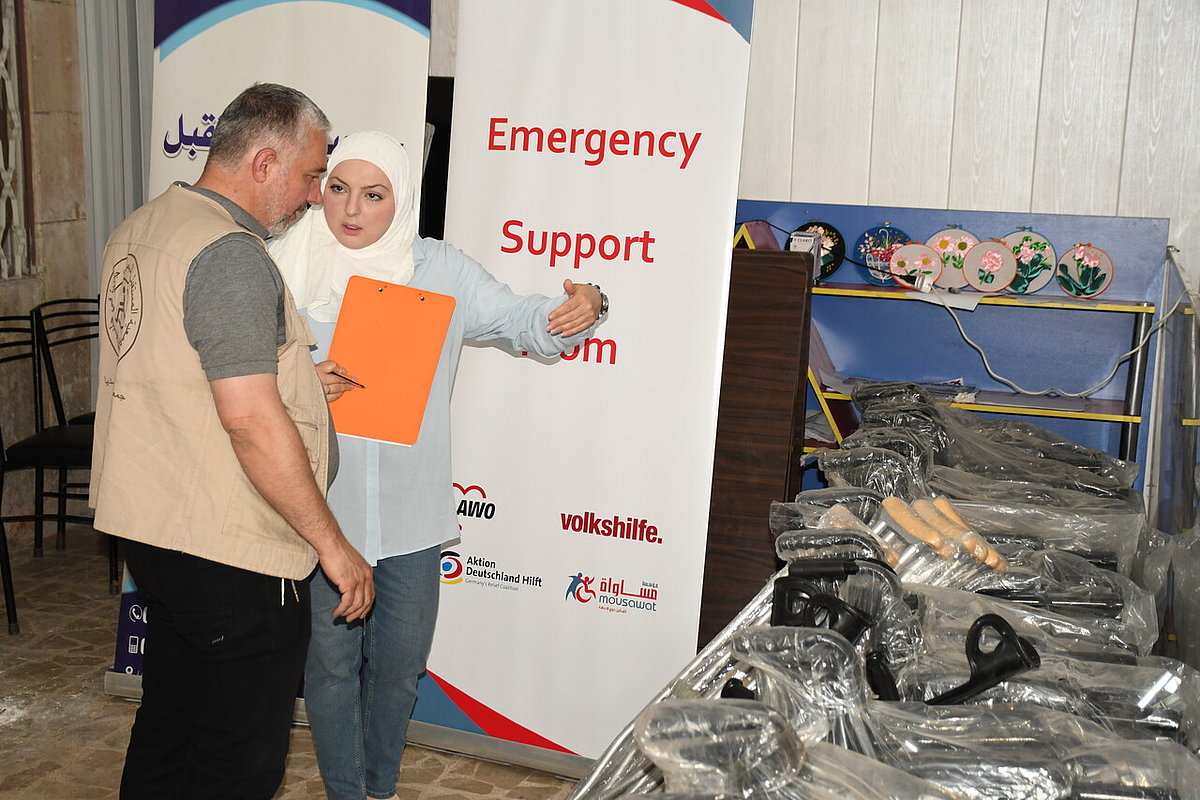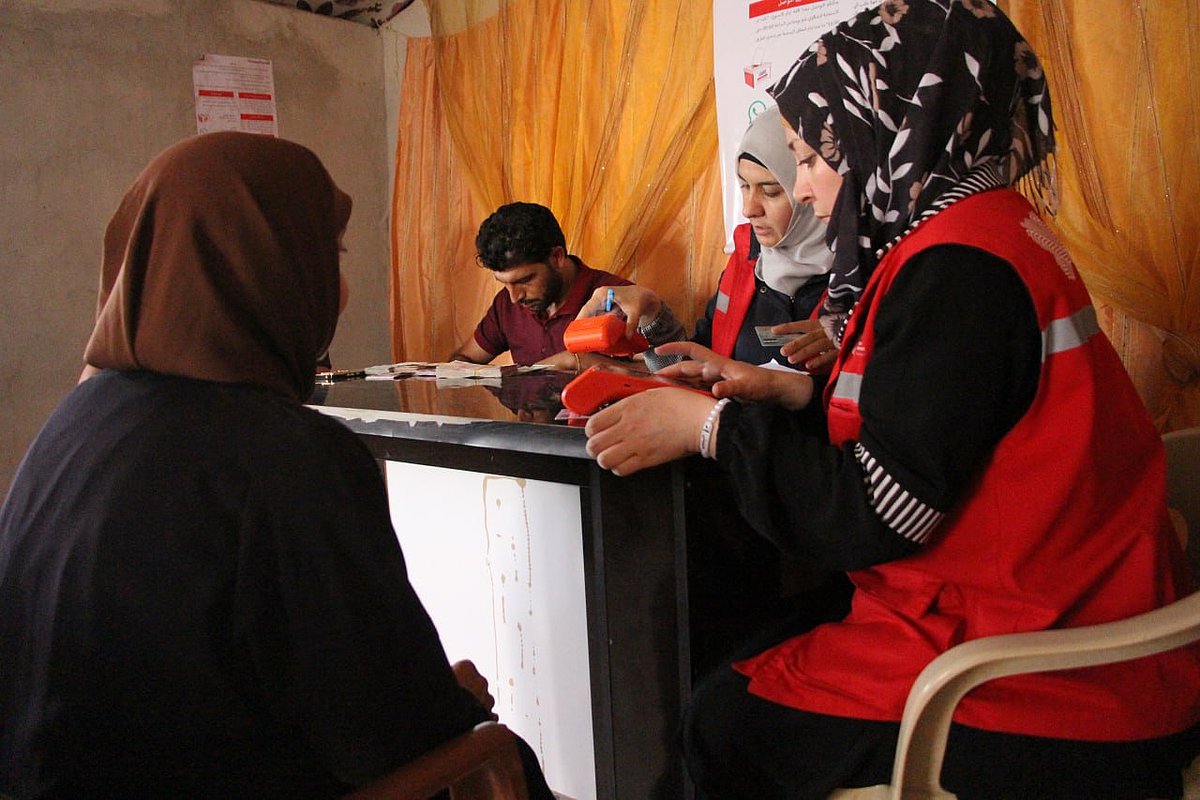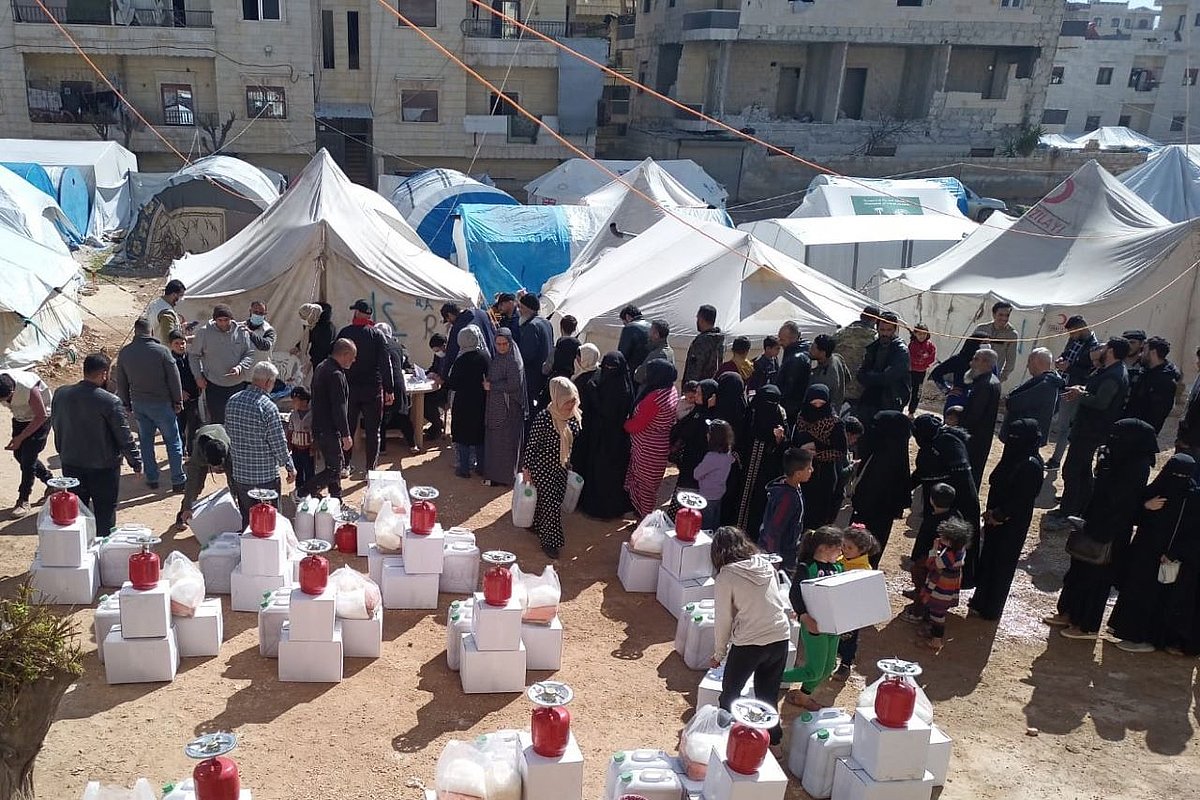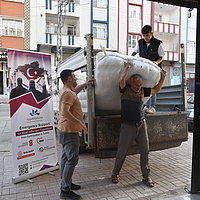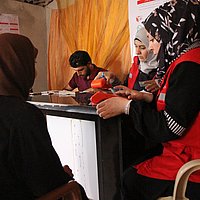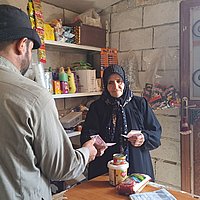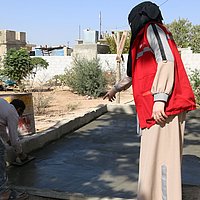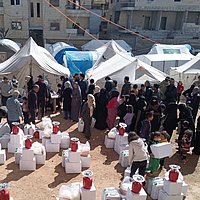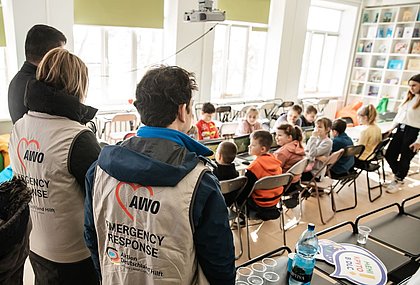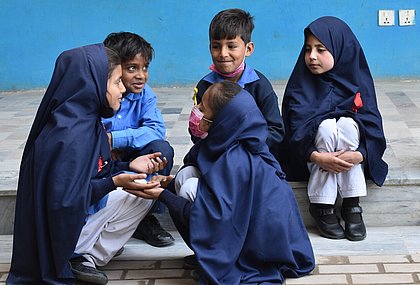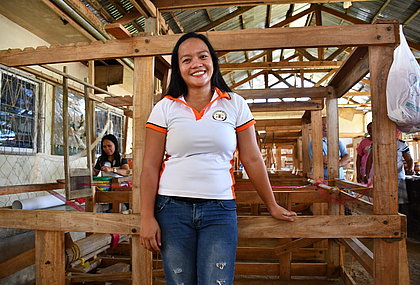The earthquake was one of the most devastating and deadly in more than a decade. We are working with Syrian and Turkish partners to provide humanitarian aid and help restore public infrastructure. Winter hits the region particularly hard. Families still living in simple tents in the camps are particularly vulnerable as temperatures drop below zero at night. Together with local partner organisations, AWO International is providing cash assistance and winterising homes. Please support us with a donation so that we can continue to provide help quickly and easily.
Emergency aid in Turkey
In Turkey, around 12 million people live in areas affected by the earthquake, including many refugees from Syria. Humanitarian needs remain high and people are still in need of assistance months after the earthquake. In the first six months after the earthquake, we and our partners focused on providing immediate relief. This included the distribution of food and hygiene parcels, mattresses, blankets and tents. In February, 550 aid packages were distributed in the Turkish town of Adıyaman, which was severely affected by the earthquake, with the help of the AWO district association in Bochum. The parcels will last a family for a month and contain items such as rice, bulgur, lentils, tinned food, cooking oil and pasta. Two emergency aid projects, which we implemented together with Solidar Suisse and the Turkish NGOs Syrian Women's Network and Zero Discrimination Association, have also been completed.
- The Syrian Women's Network consists of 21 women's rights organisations in Turkey and Syria. The joint emergency relief project focused on the distribution of essential relief items in south-eastern Turkey. A total of 610 families received food and hygiene parcels.
- Our second partner organisation in Turkey, Zero Discrimination Association (ZDA), focused on the Roma population, who face discrimination in Turkey's earthquake zones. ZDA provided 6,900 people with emergency relief items such as food, tents and blankets. In addition, 4,400 vulnerable Roma received cash and voucher assistance. The organisation also provided access to humanitarian aid through counselling and mediation services.
The first phase of emergency aid has now been completed, and our work in the region will focus on rehabilitation and reconstruction from autumn 2023. Together with Solidar Suisse and our Turkish project partner SARD, we are focusing on rebuilding destroyed infrastructure and restoring homes. The new project will support small entrepreneurs to become independent and resilient again. The aim is to help them achieve a secure income. The project will be accompanied by a study to assess people's needs and the impact of the project. This will allow future projects to be better adapted to the needs of local people. We are also working with SARD to winterise 145 homes damaged by the earthquake, for example by installing doors and windows and repairing roofs. In addition, two community projects are underway to restore water and sewerage systems. A community school damaged by the earthquake will also be renovated.
Emergency aid in Syria
The people of northern Syria were particularly hard hit by the natural disaster. The country has been severely weakened by the ongoing war, and the health system is under severe strain. In Syria, we are working with our partners Volkshilfe Österreich and Solidar Suisse, as well as four local aid organisations, to help people affected by the earthquakes. After extensive distribution activities, our partners are now focusing on rehabilitation, winterization and psychosocial support.
- Together with the Hiro Centre for Dialogue and Rehabilitation, we have been regularly distributing food and hygiene parcels in Sheikh Maksud, a district of Aleppo, since February. Hiro is also helping to repair destroyed homes so that affected families have a warm place to live in the winter, and has installed solar street lights to make the streets safer.
- Our Syrian partner, Sawaedna, is a women's initiative based in Ariha, near Idlib, with extensive experience in humanitarian aid. Sawaedna started distributing aid immediately after the earthquake. In the initial emergency phase, our joint project focused on distributing emergency kits, mattresses and blankets in the areas around Azaz and Afrin. By expanding the project, Sawaedna is able to provide psychosocial counselling and child protection training. To prepare people for the winter, the organisation has also started distributing winter clothes and heating materials to 950 families.
- Together with our long-standing partner organisation, Mousawat, we are supporting people with disabilities in the Aleppo and Latakia areas following the earthquakes. Mousawat is an NGO that focuses on the rights of people with disabilities and specialises in the rehabilitation and support of people with disabilities. It also provides training in the use of assistive devices and supports climate change initiatives.
- Since June 2023, we have been working with SARD on reconstruction in northern Syria. Affected families receive cash assistance to rebuild their homes, for example. SARD is also helping to repair community centres. In addition to reconstruction, SARD provides psychosocial support to children and their families and organises training courses on children's rights.




